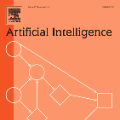In the rapidly evolving landscape of computing disciplines, substantial efforts are being dedicated to unraveling the sociotechnical implications of generative AI (Gen AI). While existing research has manifested in various forms, there remains a notable gap concerning the direct engagement of knowledge workers in academia with Gen AI. We interviewed 18 knowledge workers, including faculty and students, to investigate the social and technical dimensions of Gen AI from their perspective. Our participants raised concerns about the opacity of the data used to train Gen AI. This lack of transparency makes it difficult to identify and address inaccurate, biased, and potentially harmful, information generated by these models. Knowledge workers also expressed worries about Gen AI undermining trust in the relationship between instructor and student and discussed potential solutions, such as pedagogy readiness, to mitigate them. Additionally, participants recognized Gen AI's potential to democratize knowledge by accelerating the learning process and act as an accessible research assistant. However, there were also concerns about potential social and power imbalances stemming from unequal access to such technologies. Our study offers insights into the concerns and hopes of knowledge workers about the ethical use of Gen AI in educational settings and beyond, with implications for navigating this new landscape.
翻译:暂无翻译




